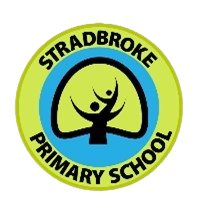Our Curriculum
We ensure that our curriculum is accessible for ALL.
We are a community where everyone is treated fairly and with respect.
We want everyone to reach their potential, and we recognise that for some pupils extra support is needed to help them to achieve and be successful.
We take our legal duties on equality seriously.
We welcome our general duty under the Equality Act 2010 to eliminate discrimination, to advance equality of opportunity and to foster good relations.
Intent
At Stradbroke CE Primary School we want our children to experience:
• A curriculum that has knowledge and vocabulary at the heart of their learning
• A rich curriculum that enables pupils to see the world from a wide range of perspectives and inspire curiosity
• A curriculum where knowledge underpins and enables the application of skills
• Opportunities to embed BASIC skills and express knowledge in a variety of ways before moving on to more ADVANCED and DEEPER levels of learning.
• Developing resilience, perseverance, challenge and support so they have the confidence to aim high and aspire to more
• Opportunities to delve deeper into their learning, building on skills progressively each year and produce beautiful work based on their own creativity and choice.
• A curriculum that responds to findings from pupil feedback and school data to ensure it is bespoke to their needs and reflects the ever-changing world, locally and globally
• A restorative culture, where pupils are given time to consider their actions and the possible outcomes of different situations, so that they learn to make the best choices
• A curriculum that helps children to know how to live healthy lifestyles – both physically and mentally
• Spiritual, moral, social and cultural experiences threaded through all we do which will facilitate them with all they need to face all futures
• Strong Christian ethos permeating through daily life which gives the children a safe and nurturing environment
Implementation
We plan learning through an enquiry approach to the curriculum with quality texts and authentic resources to inspire curiosity, discussion, support the development of reading and provide writing opportunities within each unit of work.
Learning has been organised across each class to ensure that there are a variety of key concepts that cover the content of the National Curriculum. These key concepts are then revisited over time.
We acknowledge that our class teachers are experts in their children’s learning and enable them to have a flexible delivery of the curriculum, meaning that some weeks children may not study Art, instead they will have a focus on Geography.
During other weeks, the opposite may be true, and some weeks there may be a balance across the subjects.
Organising the learning in this way ensures teachers have the flexibility to deliver the curriculum in the way that they feel will have the most impact for learners. R.E and P.E are planned weekly and follow whole school progression frameworks.
At times, learning will be directed and other times more open-ended enquiry-based approach through big questions posed by the teacher. With a mix of both practical and written work embedded.
We see the local community as valuable to our children’s learning so we thread these links into the curriculum throughout each year group.
Using the outdoors as a classroom is fundamental to our values and this can be school based or with enrichment visits to other locations. Trips/activities and experts are all vital to the enhancement of the learning opportunities we offer our children.
Impact
First and foremost, we want to instil in our children a love of learning and an understanding that the learning is part of a journey they are on. We want them to feel safe, to express and celebrate their learning achievements and recognise their own personal and academic growth.
Measuring impact is not simply a box-ticking exercise. There is an importance on measuring what children have learned through a variety of ways such as outcomes of a unit of work that may take the form of a double page spread, oracy, quizzes, dialogue and ‘products’.
